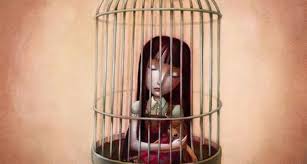Emotional Eating

Eating cakes after a relationship break-up, devouring food in times of stress, eating more than our body actually needs etc. The name for this is emotional eating, a custom for which there is no better definition than the examples we will give.
We think that “being normal people” means being in a constant state of alert about food and that we should be terrified of chocolate and cream, convinced that if we were able to control “that ferocious inner hunger” we’ll find perfect peace. We find that on many occasions eating becomes a metaphor for the way we live and the way in which we manage our emotions.
However, in many cases of compulsive eating, food functions as a smokescreen that does not let us see the real problem: the loss of emotional control due to the compulsion to fill the relative emptiness in other areas of our life.

The relationship between emotional deficiencies and food
Food can become a substitute for emotional balance. How many times have we vented our frustrations by going on a binge or eating chocolate ice cream? The compulsion that drives us when it comes to eating is often actually emotional despair.
Diets do not work because food and weight are the symptoms, not the problem. If we’re honest, we can see that concentrating on weight is a way of not paying attention to the reasons why so many people turn to food when they think they are hungry. This, of course, is reinforced by our society, which focuses its attention on the extra kilos and the calories consumed.
We also think that the loss of weight and the attainment of a beautiful figure will bring us emotional release from the painful events that torment us. Geneen Roth, an expert on the subject, stresses that excess weight is itself a symptom and that, even if we can change our weight a bit, if we do not address the underlying reasons then we will continue to feel unhappy (creating great ups and downs in our life). Here’s a passage from one of his books that illustrates this question very well:
Someone once came to one of my seminars after losing thirty-four kilos on a diet. He stood before one hundred and fifty people and said in a trembling voice, “I feel like I’ve been duped. They’ve taken away all my dreams. I really believed that by losing weight, my life would change. But what has changed in me has been only external. The interior remains the same. My mother is still dead, and it’s still true that my father beat me when I was little. I am still angry and I feel alone, and now I do not have the enthusiasm to lose weight.”

The vicious circle of emotional eating
Somehow our concern for our body masks even deeper concerns, and this fuels a vicious circle of unresolved concerns that slow down our ability to grow and develop.
For some authors the real problem of overweight and emotional feeding is that food becomes a substitute for love. Thus, as Geneen Roth states, “If we stop feeding the abused child that lives inside the lonely adult then we’ll be able to nurture love and give a place to intimacy.
In this way we will release the pain of our past life and we will settle once and for all in the present. Only if we give ourselves space for intimacy and love will we learn to enjoy food and stop using it as a substitute. “
There are times when we think that eating will save us from ourselves, from the hatred we feel, from the anguish of who we are, and from the fact that everything is the way it is and we wish it weren’t. All this is is a type of spell that reinforces a vicious circle that torments us.
When we eat in an unbalanced way we are looking after ourselves badly. But, as we said, letting off steam through food and gaining weight is, many times, just a symptom that recreates itself in a vicious circle. So, in this sense, every time we eat compulsively, we are reinforcing the belief that the only way to have what we want is to give it ourselves through nutrition.

That is why, every time we give in to an eating binge as a result of an emotional imbalance, we reinforce the hopelessness associated with our problem and that causes an even greater lack of control. A real vicious circle that feeds back and forth, because the need to eat screams out to us more and more, covering up the original problem.
Emotional eating, overeating or nutritional imbalance often serves as an imaginary support; the idea we can use food to keep the four walls of our house standing.
Putting on or losing weight or being on a diet is like being on an emotional roller coaster permanently. A person who uses food as their refuge becomes continually intoxicated throughout the chaos, emotional intensity and drama. Because, as we have said previously, eating compulsively reflects the suffering taking place in our lives.
Eating cakes after a relationship break-up, devouring food in times of stress, eating more than our body actually needs etc. The name for this is emotional eating, a custom for which there is no better definition than the examples we will give.
We think that “being normal people” means being in a constant state of alert about food and that we should be terrified of chocolate and cream, convinced that if we were able to control “that ferocious inner hunger” we’ll find perfect peace. We find that on many occasions eating becomes a metaphor for the way we live and the way in which we manage our emotions.
However, in many cases of compulsive eating, food functions as a smokescreen that does not let us see the real problem: the loss of emotional control due to the compulsion to fill the relative emptiness in other areas of our life.

The relationship between emotional deficiencies and food
Food can become a substitute for emotional balance. How many times have we vented our frustrations by going on a binge or eating chocolate ice cream? The compulsion that drives us when it comes to eating is often actually emotional despair.
Diets do not work because food and weight are the symptoms, not the problem. If we’re honest, we can see that concentrating on weight is a way of not paying attention to the reasons why so many people turn to food when they think they are hungry. This, of course, is reinforced by our society, which focuses its attention on the extra kilos and the calories consumed.
We also think that the loss of weight and the attainment of a beautiful figure will bring us emotional release from the painful events that torment us. Geneen Roth, an expert on the subject, stresses that excess weight is itself a symptom and that, even if we can change our weight a bit, if we do not address the underlying reasons then we will continue to feel unhappy (creating great ups and downs in our life). Here’s a passage from one of his books that illustrates this question very well:
Someone once came to one of my seminars after losing thirty-four kilos on a diet. He stood before one hundred and fifty people and said in a trembling voice, “I feel like I’ve been duped. They’ve taken away all my dreams. I really believed that by losing weight, my life would change. But what has changed in me has been only external. The interior remains the same. My mother is still dead, and it’s still true that my father beat me when I was little. I am still angry and I feel alone, and now I do not have the enthusiasm to lose weight.”

The vicious circle of emotional eating
Somehow our concern for our body masks even deeper concerns, and this fuels a vicious circle of unresolved concerns that slow down our ability to grow and develop.
For some authors the real problem of overweight and emotional feeding is that food becomes a substitute for love. Thus, as Geneen Roth states, “If we stop feeding the abused child that lives inside the lonely adult then we’ll be able to nurture love and give a place to intimacy.
In this way we will release the pain of our past life and we will settle once and for all in the present. Only if we give ourselves space for intimacy and love will we learn to enjoy food and stop using it as a substitute. “
There are times when we think that eating will save us from ourselves, from the hatred we feel, from the anguish of who we are, and from the fact that everything is the way it is and we wish it weren’t. All this is is a type of spell that reinforces a vicious circle that torments us.
When we eat in an unbalanced way we are looking after ourselves badly. But, as we said, letting off steam through food and gaining weight is, many times, just a symptom that recreates itself in a vicious circle. So, in this sense, every time we eat compulsively, we are reinforcing the belief that the only way to have what we want is to give it ourselves through nutrition.

That is why, every time we give in to an eating binge as a result of an emotional imbalance, we reinforce the hopelessness associated with our problem and that causes an even greater lack of control. A real vicious circle that feeds back and forth, because the need to eat screams out to us more and more, covering up the original problem.
Emotional eating, overeating or nutritional imbalance often serves as an imaginary support; the idea we can use food to keep the four walls of our house standing.
Putting on or losing weight or being on a diet is like being on an emotional roller coaster permanently. A person who uses food as their refuge becomes continually intoxicated throughout the chaos, emotional intensity and drama. Because, as we have said previously, eating compulsively reflects the suffering taking place in our lives.
This text is provided for informational purposes only and does not replace consultation with a professional. If in doubt, consult your specialist.







